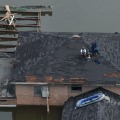When it comes to ensuring the safety and care of students during emergency situations, such as natural disasters or other potential hazards, Louisiana schools are responsible for taking the necessary steps. To ensure that personnel have access to the necessary transportation during an emergency situation, the Louisiana Department of Education (LDOE) encourages all Local Education Agencies (LEAs) to designate a point of contact for emergency preparedness and recovery. This contact acts as the person responsible for entering and maintaining emergency preparedness and recovery information for the LEA. In the event of an impending emergency, the LDOE will contact the designated emergency preparedness and recovery representative to remind them to complete and maintain the emergency preparedness and recovery panel. The Louisiana State Emergency Operations Plan (EOP) is a key component in this process, as it identifies state emergency support functions (ESF) as the structure for organizing and coordinating state resources by area of function.
This structure helps to ensure that assistance is delivered efficiently and timely to communities affected by a disaster. In addition to the ESF identified within the National Incident Management System (NIMS) structure, Louisiana has included Military Support as an ESF. The Department of Children and Family Services (DCFS) is responsible for managing state shelters for people with critical transportation needs, shelters for people with special medical needs, shelters for sex offenders, and shelters for unaccompanied minors. The DCFS also provides staff and resources to shelters for the general population who request it. The hospital will contact Region 5, the Designated Regional Coordinator (DRC) or the parish office of the Office of Emergency Preparedness (OEP) to obtain and replace medications and related supplies that will be needed during the response and recovery phase of an emergency. This includes accessing and distributing shelters that may be accumulated by its branches or local, state or federal sources.
The Emergency Management Institute also offers self-paced courses designed for people who have emergency management responsibilities and for the general public. The legislation specifically mandated the Louisiana State Police to provide an emergency response to chemical emergencies at industrial or transport-related sites across the state. Louisiana requires all public elementary and secondary schools to prepare, maintain, and implement a crisis management and response plan to help ensure that all students, teachers, and school employees are in a safe facility and prepared to respond in the event of an emergency or disaster incident. The Emergency Services Unit (ESU) of the Louisiana State Police (LSP) is the primary agency in the state of Louisiana with regulatory and legal authority for hazardous materials and explosives. The 6-step Access Readiness and Emergency Management for School (REMS) process is designed to create plans that continuously build and promote safe and healthy school communities before, during, and after potential emergencies. The REMS Technical Assistance Center website contains free resources, training, and technical assistance (TA) for schools and their community partners, including many tools and resources on emergency planning and responding to infectious disease outbreaks. Act 435 of the 1985 legislative session established Right-to-Know (RTK) laws, according to which owners and operators are responsible for submitting inventory forms for all hazardous materials manufactured, used, or stored at their facilities.
They are also required to immediately report any release of certain hazardous materials in certain declarable quantities to the Hazardous Materials Unit of the Louisiana State Police. In accordance with the State Emergency Operations Plan, the Louisiana Department of Children and Family Services has primary responsibility for coordinating with local, parish, tribal governments, state and federal entities, support agencies, and non-governmental organizations to address mass non-medical care needs, emergency assistance housing, human services of disaster victims.






